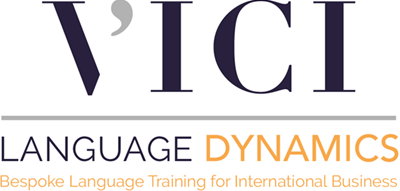Not far from our French office in Lons-le-Saunier is a lycée (state funded secondary school) specializing in “hôtellerie”. In addition to hospitality qualifications like business management and team leadership, it offers specific vocational courses; Hotel Technology Baccalaureate, Housekeeping Professional Certificate, Culinary Production Technical Certificate.
Qualifications in hospitality are taken seriously in France. This could be a reflection of the fact that France is so reliant on tourism. Or maybe it’s due to the significance French culture places on food and wine!
Whatever the reason, this was my mindset when I first started working in the language industry in the UK.
According to a recent KPMG report, EU nationals occupy three-quarters of waiter and waitress roles within the hospitality industry in the UK, so it seemed obvious that the hospitality sector should be low hanging fruit from a language training perspective.
I quickly realized, however, that there was a huge disparity between the need and the want for language training.
The same hotels and restaurants that clearly needed to provide language training options for a workforce who mostly spoke English as a second language, didn’t want to invest in that workforce. With high staff turnover and a basic minimum wage as the norm, many companies didn’t see their employees as a sensible investment.
After repeated enquiries that didn’t go anywhere, I started to pursue other avenues. But I have always kept in mind that this should be an area of rich potential.
After all, Henry Ford said: “The only thing worse than training your employees and having them leave, is not training them and having them stay.”
Recently I have revised the subject, meeting with HR Directors, recruiters and people managers representing premium hospitality organisations such as luxury hotels and golf courses. They have exactly the same potential staff turnover issues – low workforce tenure, poaching from competitors, losing recently-trained staff – but, catering to a clientele with high service expectations, they are more willing to provide training for their people, seeing it as investment and not just an expense.
A staff language training strategy is an investment in employees’ confidence, well-being, and greater sense of achievement. Having such a significant and positive role as this speaks highly of any company.
Furthermore, having a team of individuals who are confident linguistically is great for business – being able to deftly handle not just enquiries but complaints, and having the confidence to smile and proactively start conversations with hotel residents can be the difference between an unexceptional and a truly memorable customer experience.
And we all know that a satisfied employee with well-defined training goals is likely to stick around for longer too!
In response to the specific requirements of the hospitality segment, I’ve put together a range of training packages, incorporating features like flexibility, remote coaching and group work at an incredibly cost-effective price point.
So if you are in the hospitality industry and want to talk more about the benefits of staff language training, or discuss how VICI can help with your language training strategy, don’t hesitate to call 01635 813 273 or email help@vicilanguagedynamics.com.
And if in doubt, remember this quote from Richard Branson:
“Train people well enough so they can leave. Treat them well enough so they don’t want to.”

